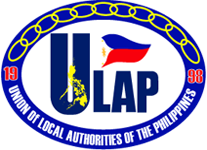PRESS RELEASE
02 MAY 2023
ULAP Proposes Shift from Devolution to Service Delivery Enhancement-Centered Framework for LGUs
Union of Local Authorities of the Philippines (ULAP) national president Governor Dax Cua on Tuesday urged the government to shift from ongoing efforts of devolution of services to Local Government Units (LGUs) under Executive Order 138 to a service delivery enhancement-centered approach, wherein additional funds following the Mandanas-Garcia Ruling of the Supreme Court will instead be utilized to improve service delivery at the local level.
“We propose that instead of relegating national programs from NGAs to LGUs through devolution, we empower our LGUs to become able partners in nation-building and in the attainment of the national development agenda by allowing them to improve their service delivery functions in a way that is responsive to the needs of their respective constituents,” said ULAP national president Cua.
“This means that we have to review all the services that are being performed by the government, backcast what we want to achieve in line with the Philippine Development Plan and the Socio-economic Agenda of the President, evaluate the performances of current programs and identify best practices, and map out expert recommendations on how these services could be better improved. Once we have identified the essential services that have to be delivered to the public, we can scale and scope these services to identify what level of government has the responsibility to undertake these services,” Gov. Cua added.
Almost two (2) years since the issuance of EO 138 and its implementing rules and regulations, most devolved functions/services/facilities have not yet been assumed by LGUs based on the LGU DTP Data Analytics, and there had been NGA assessments indicating the insufficient technical and financial capacity of LGUs to perform devolved functions/services requiring huge investments and highly specialized technical expertise.
ULAP’s proposal seeks to identify what the essential services are (consisting of basic services, well-performing services, best practices, and sound policy recommendations) and identify what level of government should have the responsibility to deliver these services based on capacities and the “jurisdiction having control over the minimum geographic area that would internalize the benefits and costs of such provision” (Oates, 1972) or “the unbundling of broad sectoral/ functional assignments,” (GTZ, 2009). In determining the scope and scale of service delivery, it is important to consider the concept of complementing and supplementing support. Complementing support refers to the collaboration and coordination of different levels of government and stakeholders to ensure that essential services are delivered efficiently and effectively. Conversely, the act of supplementing support pertains to the allocation of supplementary resources or assistance from superior tiers of governance to lower tiers of governance, with the aim of guaranteeing the provision of fundamental services.
“We are currently working with the Department of Interior and Local Government (DILG) to flesh out the details of this approach upon the instruction of President Marcos, and we look forward to partnerships with other national government agencies, local government units, academic institutions, policy centers, and policy experts as well to push this service delivery enhancement-centered approach,” Cua said.
“The plain and simple fact of the matter is that pushing LGUs to accept devolved functions without ensuring that they have the capacity is like a zero-sum game, where the gains of one party come at the expense of another. The same is true if we were to expect the national government to continue to carry out services with reduced funding. ULAP's proposal, on the other hand, seeks to create a win-win situation not only for both the national government and LGUs but most especially for the people,” Cua added.
ULAP's proposal is aimed at ensuring that public services are not diminished, and even improved, despite reduced spending on the national government's account in favor of LGUs. By taking a service delivery enhancement-centered approach, the government and LGUs can work towards a more efficient and effective provision of essential services for the benefit of all constituents.
----- o0o -----




